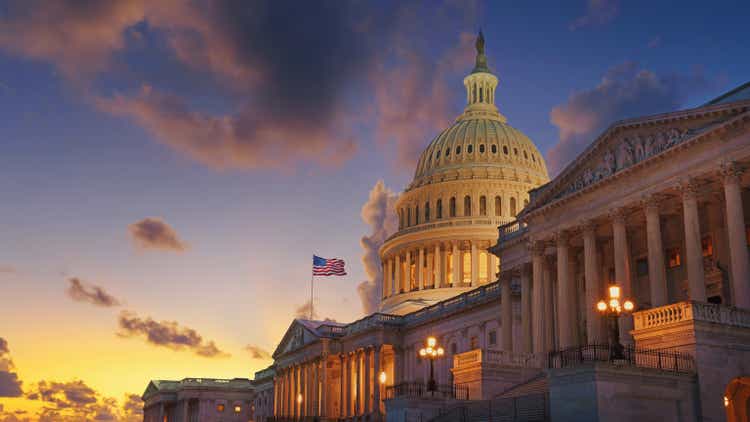
FotografieLink
The U.S. election is just six full trading days away. For investors in the automobile sector, the major implications of the election will be on trade and environmental policies.
In terms of environmental policy, the Inflation Reduction Act, the Corporate Average Fuel Economy standards, and the emission standards are all on chopping block if Republicans do well as currently predicted, although analysts have noted that the anticipated timeline for changes could be two years into the new administration.
In terms of trade policy, both candidates have expressed intentions to revisit the USMCA agreement and favor using tariffs. Bank of America said its impression is that both are keen on protecting the domestic auto industry from the competitive threat of Chinese companies developing a footprint in Mexican footprint. While Donald Trump is seen using rhetoric and tariff threats once again if in the White House, Kamala Harris has supported the current 100% tariff rate on China-made electric vehicles.
As for stock winners and losers, Bank of America sees legacy Detroit auto giants Ford Motor (NYSE:F) and General Motors (NYSE:GM) better positioned in a Republican administration since the pace of transition to electric vehicles might be slower and fewer non-compliance fines paid, while pure-play electric vehicle makers such as Lucid Group (NASDAQ:LCID) and Rivian Automotive (RIVN) could be hurt by demand trends. The converse is seen being true if Democrats were to win the White House or control Congress. Interestingly, BofA sees little impact either way for the auto dealer group of Carvana (CVNA), Carmax (KMX), Penske Automotive (PAG), Autonation (AN), and Lithia Motors (LAD), However, auto suppliers such as Aptiv (APTV), Genuine Parts (GPC), Magna International (MGA), Mobileye Global (MBLY), BorgWarner (BWA), and Autoliv (ALV) are seen having a difficult road ahead because both candidates publicly support tariffs, which risks escalating trade tension with China.
What about Tesla (NASDAQ:TSLA)? Of course, Elon Musk is widely seen being treated favorably by Donald Trump if he were to win the White House, despite Musk saying in 2022 that he was too old to run. Speculation that Musk would leave Tesla (TSLA) and SpaceX (SPACE) to serve in an official capacity under a Trump Administration is seen by most analysts as unlikely, but he could be in a strong position to have closer worker ties to regulators and key cabinet members in the Trump scenario.
Investors may be already placing their bets on the direction of the election based on polling, prediction market, or gut instincts. For October, the gainers in the sector have included ZEEKR Intelligent (ZK) +43%, General Motors (GM) +15%, Li Auto (LI) +15%, Ford Motor (F) +5%, VinFast Auto (VFS), and Tesla (TSLA) +5% after some wild swings. Decliners for the month include Lucid Group (LCID) -30%, Polestar Automotive (PSNY) -24%, Stellantis (STLA) -12%, Honda Motor (HMC) -10%, Toyota (TM) -9%, NIO(NIO) -8%, and Canoo (GOEV) -7%. Aside from the election, macroeconomics concerns and China stimulus jubilation have also been major factors in the recent trading action.
Based on the last two couple of elections, the most savvy trades may be playing the overreactions to the election results. Betting against the prevailing assumption of the implication of a Democrat and Republican administration has been an outperformer in the six-month period after the election, per trading data.
